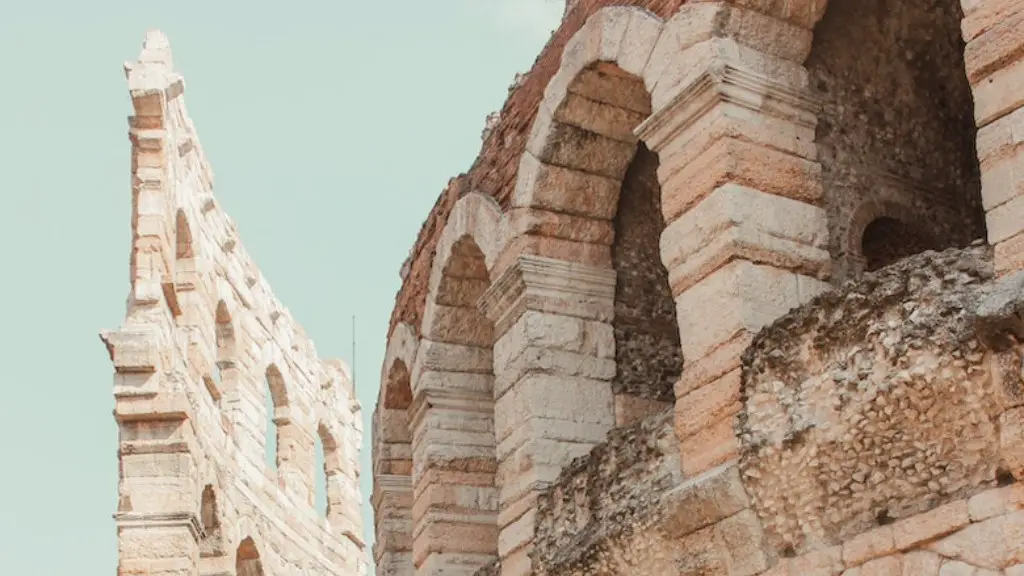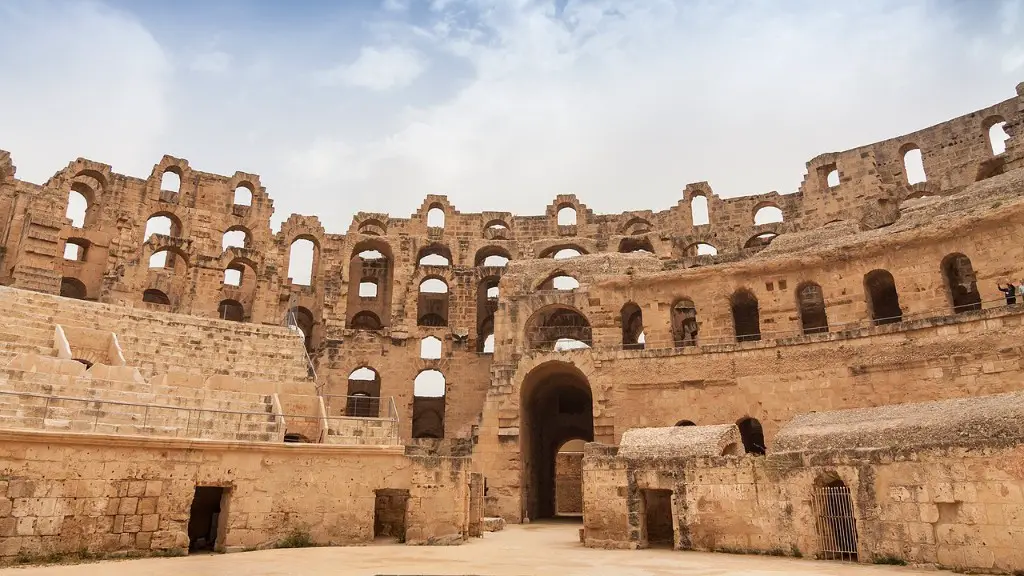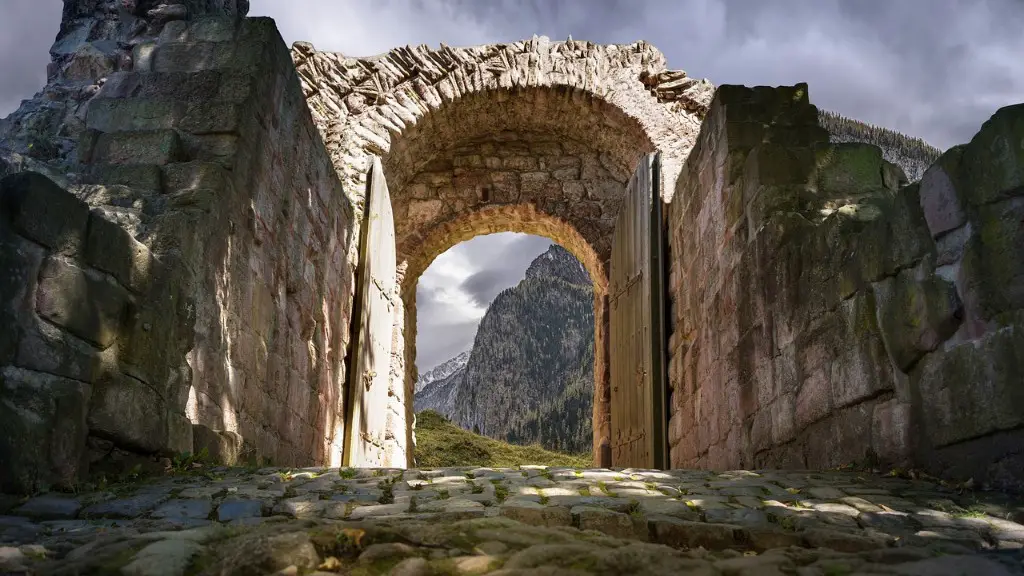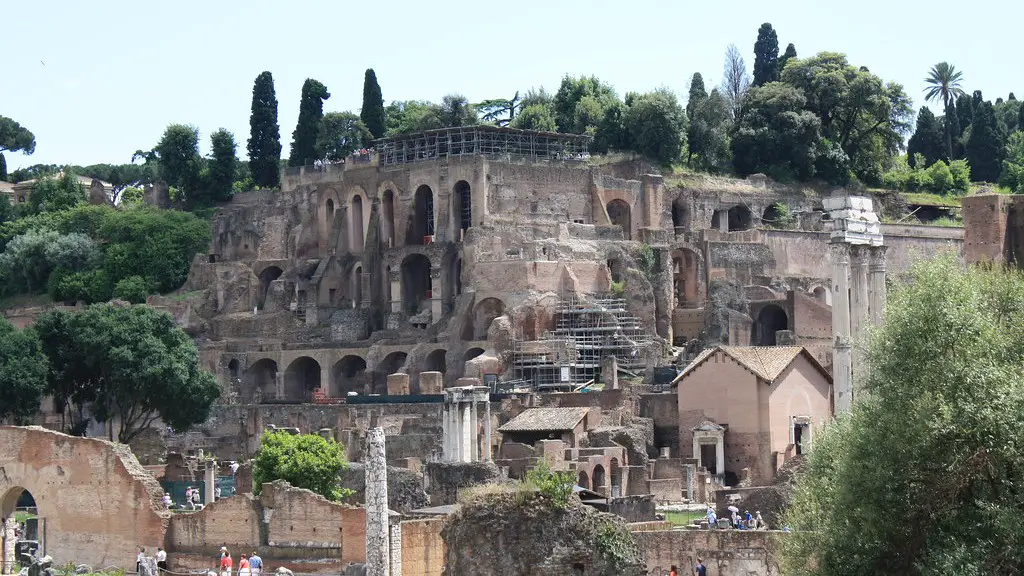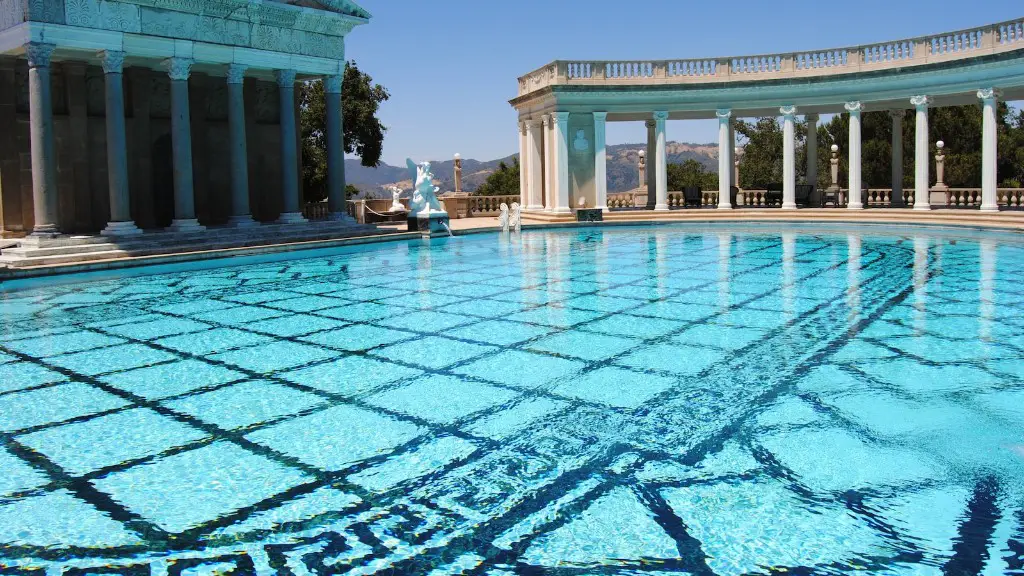The question of what leaders were called in ancient Rome is a difficult one to answer. It depends largely on the context and the period being discussed. In some eras, it was customary for leaders to have a specific title or name that distinguished them from their peers. In other eras, titles might be replaced by nicknames or brief descriptors. Generally, however, there existed a strong tradition of conferring titles of distinction upon those in positions of power and influence. One of the most famous titles conferred in Ancient Rome was the title of “imperator”, from which the English word “emperor” is derived.
The title of Imperator was initially used to refer to high-ranking generals who, by virtue of their successes in battle, had been granted a position of great political and military importance. These individuals were given a number of privileges, including command of large-scale military campaigns and, in some instances, control over various provinces of the Roman Empire. Over time, the holders of this title began to assume greater and greater authority, eventually leading to the establishment of the Roman Empire under Augustus Caesar.
Outside of the Imperial context, the title of “consul” was used to refer to the two leaders of theRoman Republic. Consuls were chosen each year to advise the Senate on matters of state and to represent the Republic abroad. While consuls were notabsolute rulers like the emperors, they held considerable power within the state and were often regarded as the public face of the Republic. They held their office for a year, sharing their responsibilities with a partner and taking turns in carrying out the functions inherent in their position.
The Roman magistrates were another group of officials who were conferred titles of distinction. This group included praetors, quaestors, and aediles, who were responsible for carrying out a variety of public duties, ranging from administering justice and managing public works projects to organizing the city’s finances and leading military campaigns. The title of “tribune” was also sometimes conferred upon individuals who had played an important role in politics or government.
In addition to the official titles conferred by the state, considerable power was wielded by individuals known as “patricians”. This term was originally used to refer to the members of the most powerful and influential noble families in Rome, but over time it bred a wider class of aristocrats. Patricians had extraordinary influence thanks to their wealth and their often-extensive political connections.
A final important class of Roman leaders were the “dictators”. These individuals were appointed by the Senate in times of crisis and given temporary absolute power to expedite difficult decisions. These dictators often came from obscure backgrounds, yet were able to wield tremendous power by virtue of the authority vested in them by the Senate. The most famous example of a Roman dictator is Julius Caesar, who was appointed in 49 BC and eventually used his position to become the first Roman Emperor.
Origins Of Leadership Traits
Despite the various titles and offices that conferred authority on certain individuals in Ancient Rome, the leadership traits of these individuals were often quite similar. Many of these traits can be traced back to the early years of the Republic when Roman leaders were expected to be “above reproach” in terms of their public conduct and their private affairs. This demanded them to be “sensible, honorable, courageous and to strive only for glory”, as Polybius put it. In short, Roman leaders were required to exemplify a strong moral character that was derived from the ancient Roman virtues of ‘norm of justice’ and ‘love of country’.
These values were at the heart of the Republican system of government and were reinforced through public education. Roman citizens were instructed in the virtues of moderation, courage and wisdom, among other things. This system of moral instruction provided a set of guiding principles by which the citizens of Ancient Rome could aspire to lead the Republic into a better future. Perfection in these virtues served as a metric by which the leaders of Rome could be judged, with transgressions met with swift and severe punishment.
Decline Of Leadership Authority
The power of leadership in Ancient Rome slowly declined as the Republic came to an end and an Imperial system emerged. As the Senate was reduced in influence, the power of the emperor increased, allowing him to act independently of the legislature. This shift in the balance of power eventually saw the fall of the Republic and the introduction of autocratic rule. With this new system of governance in place, the importance of leadership traits such as republic virtue and moral rectitude began to wane, to be replaced by a system of control that was built on fear and obedience rather than mutual respect.
The emperor also increasingly relied on the power of the military to maintain control, resulting in the rise of a more militaristic form of leadership within the Empire. This new form of leadership placed greater emphasis on the need to win wars and campaigns, leading to a greater focus on tactics and strategy rather than character and morals. Over time, this shift led to a weakening of the traditional Roman virtues, which helped to further weaken the influence of the Republican system of governance.
Persistence Of Leadership Values
While leadership in Ancient Rome evolved over the centuries, certain values and traits remained persistent. For example, the Roman virtue of civic duty and patriotism were often exhibited by rulers who sought to strengthen the importance of their state in the wider international community. Similarly, the concept of “Fairer Causes” was also sometimes upheld by leaders who saw their responsibilities as embodying the principles of justice, fairness and equity.
These values, although often modified to suit the needs of the times, underpinned the leadership style of many emperors through to the end of the Roman Empire. Even in the early days of the Republic, certain individuals upheld these values, providing a much-needed source of inspiration and guidance. Throughout history, Roman leaders have served as an important source of inspiration, demonstrating the possibility of achieving greatness even in the most difficult of circumstances.
Adaptability Of Leadership Approaches
The leaders of Ancient Rome were known to be adaptive to changing circumstances, often finding new ways to consolidate their power. This adaptability was put to use in a variety of ways, from military reforms to establishing alliances with powerful foreign entities. The ability to adjust quickly to changing situations was seen as an important virtue, one that allowed Rome to maintain its position of dominance in the Mediterranean for centuries.
Moreover, many of the most successful Roman leaders were those who adopted an approach of caution and foresight when making decisions. For instance, Julius Caesar is often remembered for his strategic planning in the face of military opposition and his deft management of political relationships. As a result of his careful approach, he was able to consolidate his position of power and eventually transform the Roman Republic into the Roman Empire.
The leaders of Ancient Rome developed a range of strategies to cope with different challenges. To face the threat of a powerful military, they developed strong military forces of their own. To ensure the loyalty of their citizens, they relied on a combination of rewards and punishments. To maintain the security of their domain, they cultivated relationships with both allies and rivals.
Influence Of Leadership Legacy
The legacy of leadership in Ancient Rome has been felt throughout history. Many of the ideas and values that spurred the rise of Roman leadership still shape modern political systems. The importance of upholding justice and fairness are still seen in many Western democracies, and the concept of putting the collective interests of the Roman people before the individual desires of rulers is still embraced in many different forms.
The political maxim of “peace through strength”, famously put forward by Julius Caesar, is another example of an enduring legacy of Roman leadership. This philosophy has been adopted by many modern nations in their efforts to protect themselves from external threats and maintain their national security. Ultimately, the approaches to leadership developed by the ancient Romans continue to provide modern societies with important lessons on how to navigate tumultuous times and ensure stability and prosperity.
Continued Respect For Leadership
In spite of the numerous flaws in the ancient Roman system of leadership, it is still admired and respected today. Many of the leaders of Rome have become legendary figures, remembered for their accomplishments and bravery. Augustus Caesar, for instance, is often credited with transforming the Republic into an empire and establishing a viable system of governance for hundreds of years. Similarly, Julius Caesar is remembered as a great military commander who greatly expanded the borders of the Republic.
The legacy of Ancient Rome is also seen in its monuments and artifacts, which are still marveled at today. Recent archeological discoveries have shed important light on the lives of these Roman leaders and the culture that surrounded them, helping to recreate a richer picture of their lives and accomplishments. The memory of these great leaders is reflected in these texts and artifacts, reminding us of their greatness and inspiring us to strive for similar greatness today.
Impact On Modern Leadership Styles
The leadership styles of the Roman Empire have had a profound influence on modern leadership practices. Many of the principles of Roman leadership, such as the notion of collective responsibility and the importance of maintaining justice and fairness, are still upheld in modern societies. In particular, the idea of the “ideal leader” as a virtuous and self-sacrificing individual is still embraced in many circles.
In addition, the desire for strong and decisive leaders has also persisted. This is seen in the popularity of strongman leaders in many parts of the world today. The idea that a leader should not be afraid to take decisive action and should be unafraid to put the collective wellbeing of their people over the individual interests of a few is one that resonates with many people. Ultimately, the legacy of Ancient Rome provides us with a number of lessons that can be applied to modern leadership practices.
Presence Of Leadership In Liturgical Works
The legacy of leadership in Ancient Rome can also be traced in the works of religious texts. A number of passages from the Bible and other Christian texts reference the importance of leaders and how they should be chosen. The idea that leadership should be based upon personal integrity and righteousness is a concept rooted in the writings of these ancient religious texts and can be seen in their descriptions of kings, prophets and other political figures.
The importance of these religious texts in providing an ethical framework for leadership is also reflected in the works of early Roman authors, such as Virgil and Cicero. These authors often praised the leaders of their era for embodying the traits of ideal leaders and sought to replicate this ideal in their own works. Ultimately, the idea that leadership should be rooted in the principles of justice and morality can be traced back to the religious works of Ancient Rome.
Influence On Leadership Education
The influence of Ancient Rome on modern leadership education is also quite considerable. Roman ideals of leadership have provided the basis upon which modern theories of leadership have been formed. From the writings of Virgil and Cicero to the military tactics of Julius Caesar, various ideas and practices of leadership have been studied and incorporated into modern leadership education. Similarly, the works of religious texts have also provided important ethical frameworks for understanding the power of leadership and its importance for managing individuals and societies.
In short, the legacy of Roman leadership is still hugely influential today. While the exact titles and roles of the Ancient Roman leaders may have been forgotten, their reputations as strong, wise and courageous individuals remain. Even today, their legacy of leadership continues to inspire modern leaders to strive for greatness and serve the greater good of their people.
